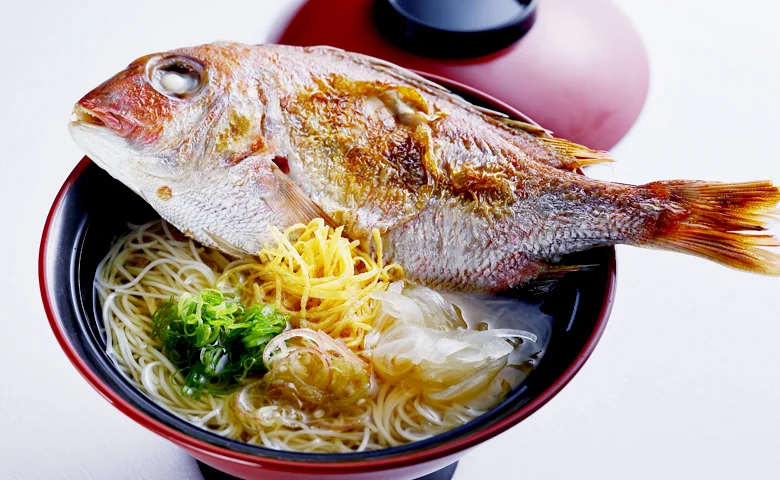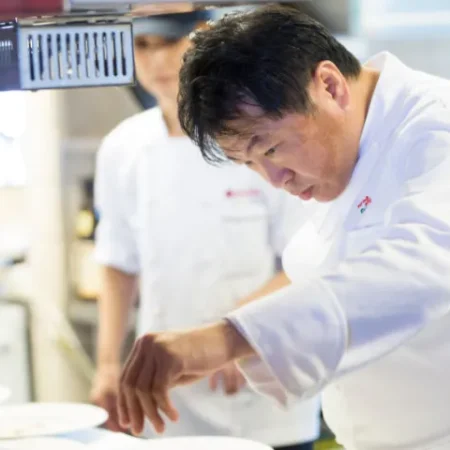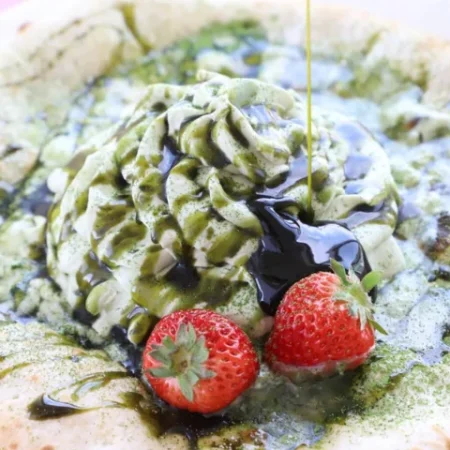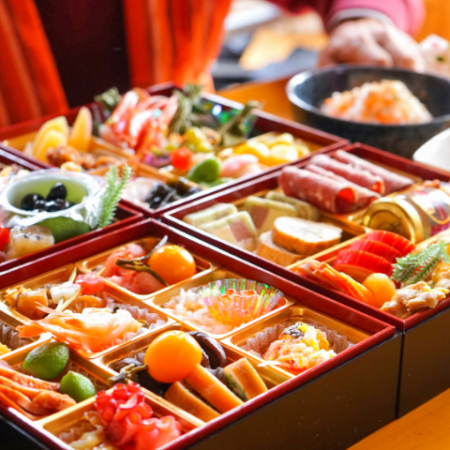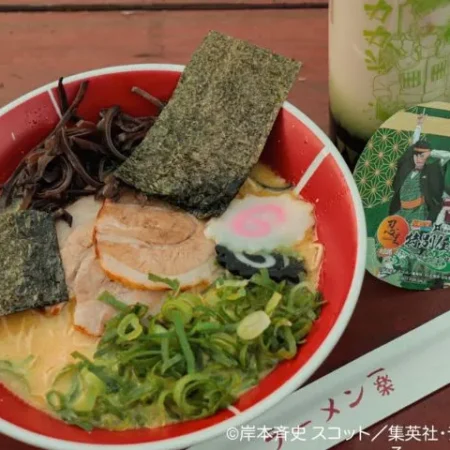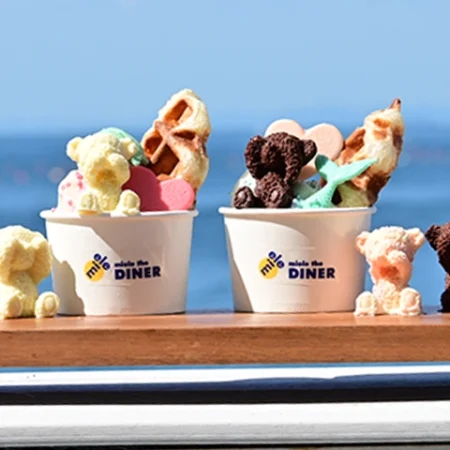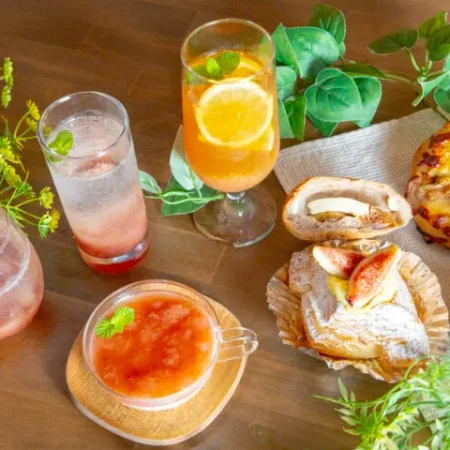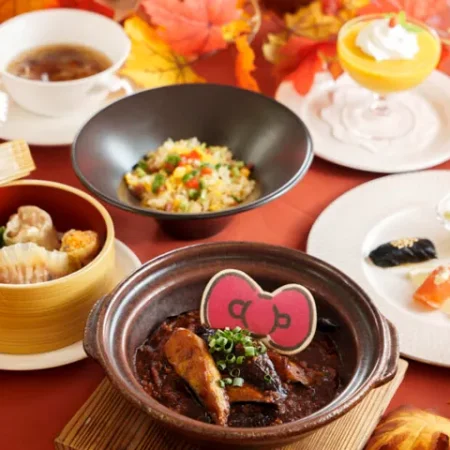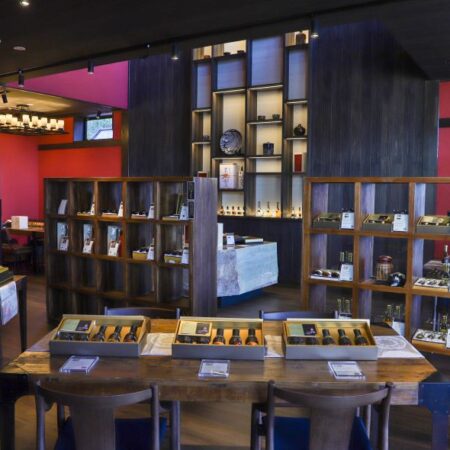Awaji Island Ebisu Sea Bream, introduced in the fall of 2021, refers to a high-quality sea bream caught at various fishing ports on Awaji Island. All 17 fishing cooperatives on Awaji Island participate in the sea fishing to catch this prized ingredient. In this article, we will explore what makes Awaji Island Ebisu Sea Bream one of the finest fish ingredients in Japan.
Table of Contents
Awaji Island Sea Bream Characteristics
The Awaji Island’s three straits—Naruto, Akashi, and Kitan, create strong tides, fostering an environment rich in crabs and shrimp, the sea bream’s primary food. This results in high-quality sea bream with a rich fat flavor. The fast tides also make the sea bream very active, giving their flesh a firm, muscular texture that is exceptionally delicious.
Awaji Island Ebisu Sea Bream can be caught year-round, but it is said to be most delicious from September to November, just before winter, when it is particularly fatty. In contrast, sea bream caught from April to June has a milder flavor. This seasonal variation means you can enjoy different flavors of Awaji Island Ebisu Sea Bream throughout the year.
The concept of Awaji Island Ebisu Sea Bream is based on the following three points:
- This wild red sea bream is caught in the waters near Awaji Island, surrounded by three straits.
- Experienced fishermen from Awaji Island catch the sea bream.
- The food is prepared to highlight the quality of the ingredients.
The History of Awaji Island Ebisu Sea Bream
For a long time, from ancient times to the end of the Edo period, it is said that the emperor’s lunch included salt-grilled sea bream, believed to have been sourced from Awaji Island. Even today, “dried sea bream” from Maruyama Fishing Port in Minami Awaji City has been presented at the enthronement ceremonies of four emperors over the Reiwa, Heisei, Showa, and Taisho eras.
The wild sea bream of Awaji Island is named “Ebisu sea bream” after the name of the God “Ebisu”. According to legend, Awaji Island is where the creation of Japan myth began, with a huge involvement by Izanagi-no-Mikoto and Izanami-no-Mikoto. Their first child, Ebisu, has been worshipped by the islanders as the god of navigation, safety at sea, and large catches, as well as the god of bountiful harvests, prosperous business, and happiness on land.
Nutritional value and benefits of Awaji Island Ebisu sea bream
Awaji Island Ebisu Sea bream is rich in glutamic acid and inosinic acid, which enhance flavor and promote cell regeneration. It is low in fat, making it ideal for those on a diet. Additionally, it is packed with nutrients like vitamins B1 and B2, as well as taurine, potassium, and niacin, which help lower cholesterol and improve liver function. The fish also contains DHA and EPA, which thin the blood, and astaxanthin, a powerful antioxidant effective in preventing and improving lifestyle-related diseases.
Restaurants Where You Can Enjoy Awaji Island Sea Bream
*Please note that this may not be available depending on the season. Please check with the store before visiting.
1) SEIKAIHA Aonoya
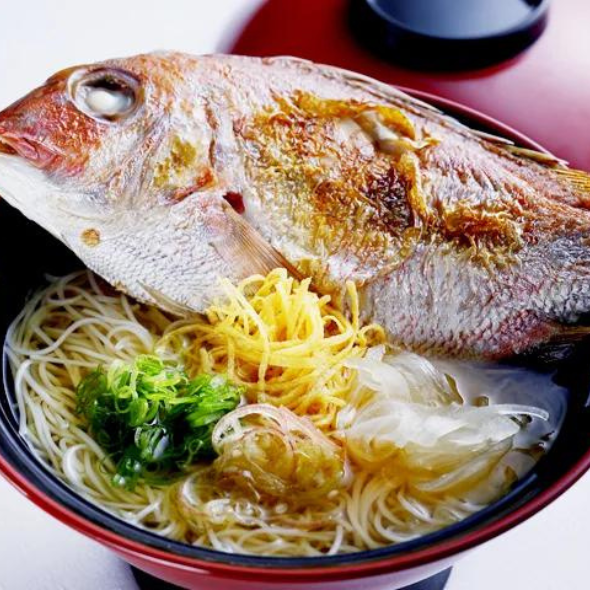
Sea Bream Somen is a local dish of Awaji Island. In the spring, a special course features abundant Sakura Sea Bream. This Japanese restaurant also offers sushi and tempura made with a variety of seafood from Awaji Island.
| Name | SEIKAIHA - Aonoya |
|---|---|
| Address | 70 Nojima-okawa, Awaji City, Hyogo Pref. 656-1723 A free shuttle bus is available. |
| Tel | 0799-70-9020 |
| Website | https://awaji-seikaiha.com/aonoya/ |
| Reservations | https://www.tablecheck.com/en/shops/awaji-seikaiha/reserve |
| Operating Hours | 11:00~15:00 (Last In 14:00, L.O. 14:00) 17:00~21:00 (Last In 19:30, L.O. 20:00) Closed: Thursdays |
Click here for details of SEIKAIHA - Aonoya
2) SEIKAIHA Uminoya

The thick and meaty pan-fried red sea bream is a popular main dish, available a la carte or as part of a course. Uminoya, a Western restaurant, uses ingredients from Awaji Island to create Japanese-style Western-style dishes.
3) Auberge French Forest


Auberge consists of three French restaurants, that are popular for their course menus. Auberge uses local Awaji Island ingredients to create exquisite French dishes. During the sea bream season, Ebisu Sea Bream often features as the main course dish.
| Name | Auberge “French Forest” |
|---|---|
| Address | 2593-8 Kusumoto Aza Banaka, Awaji City, Hyogo Pref. 656-2301 A free shuttle bus is available. |
| TEL | La Rose 0799-70-6062 Grand Baobab 0799-70-6063 |
| Website | https://frenchnomori.jp/ |
| Reservations | https://frenchnomori.jp/reservation/ |
| Hotel Reservation | https://go-frenchnomori.reservation.jp/en |
| Operation Hours | Lunch – 11:30~15:30 (Last Entry: 13:00) Dinner – 17:30~21:30 (Last Entry: 19:00) |
| Menu | A Full-Course Lunch ¥7,000~/ A Full-Course Dinner ¥10,000~ |
Click here for details of Auberge “French Forest”
4) Ristorante Scuola

This restaurant offers creative Italian cuisine focused on locally sourced ingredients. It is a popular spot where the chef meticulously crafts dishes based on the season. During sea bream season, you can expect to find a variety of dishes using this prized ingredient in pasta dishes.
| Name | Ristorante Scuola |
|---|---|
| Address | 843 Nojimahikinoura, Awaji City, Hyogo Pref. 656-1721 A free shuttle bus is available. |
| TEL | 050-3816-2213 |
| Official Web Site | https://nojima-scuola.com/ristorante/ |
| Reservations | https://www.tablecheck.com/en/shops/nojima-scuola/reserve |
| Operation Hours | 11:30 a.m.~3:30 p.m. (in by 2:00 p.m. & L.O. 2:00 p.m.) 6:00 p.m.~9:30 p.m.(in by 7:30 p.m. & L.O. 7:30 p.m.) |
| Closed | Wednesdays |



